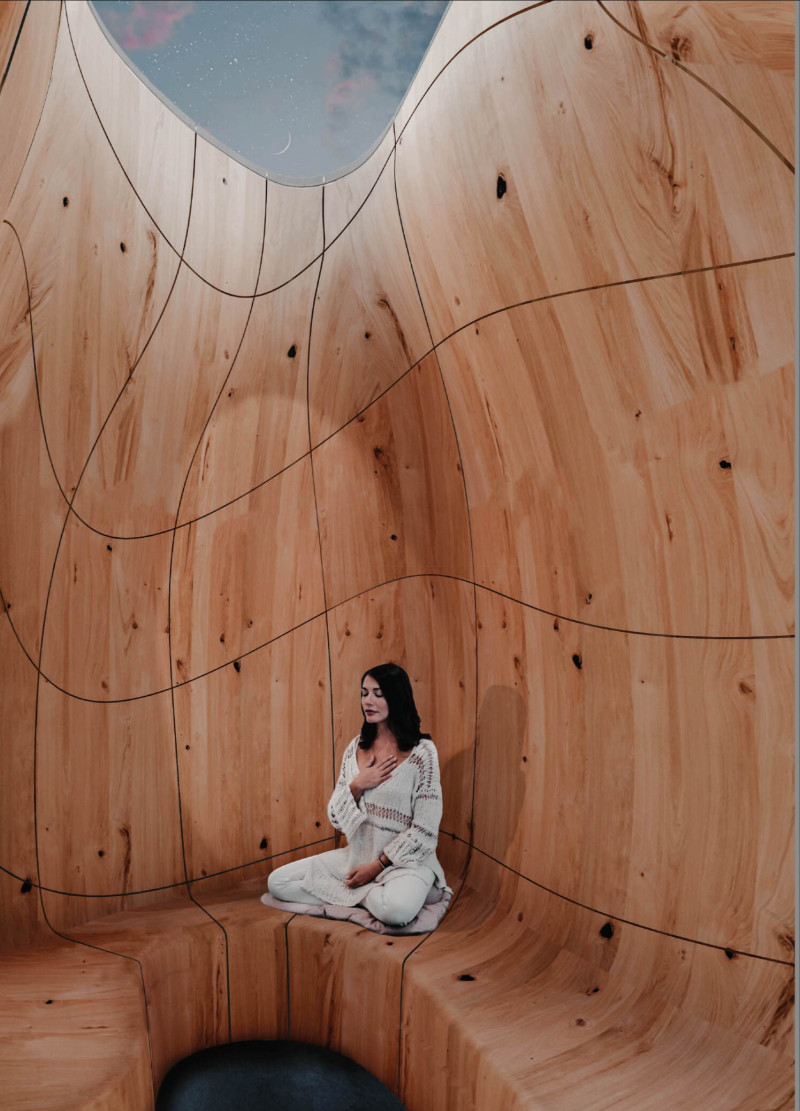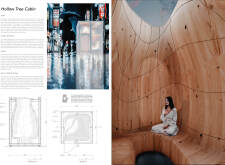5 key facts about this project
The Hollow Tree Cabin serves as a thoughtful addition to the urban landscape of Tokyo, aiming to create a space that reconnects individuals with nature. Designed to be a retreat from the fast pace of city life, the cabin emphasizes tranquility and reflection. Its design focuses on organic forms that contrast with the traditional linear structures found in the surrounding area, promoting a sense of harmony with the environment.
Spatial Dynamics
The architectural design features a shift from straight lines to smooth, flowing shapes. This change encourages a connection with the natural surroundings while providing a range of spatial experiences. The layout allows for interactions with light and shadow that enhance the ambiance inside. As one moves through the cabin, the changing shapes create unique experiences in each space.
Materiality
CNC-milled panels made from raw pine timber are central to the structure, providing warmth and comfort. These materials are known for their positive effects on well-being, such as reducing stress and promoting relaxation. Meanwhile, semi-transparent PVC panels invite curiosity. They offer glimpses of the wooden interior while maintaining a connection with the outside environment.
Light and Shadow
A significant feature of the cabin is the skylight, which brings natural light into the interior. This design element pulls the eye upward and creates views of the sky, helping to lessen distractions from the urban surroundings. Light filters through the spaces, resulting in an ever-changing play of shadow and brightness that shifts throughout the day.
Interior Experience
Inside, the layout emphasizes a rise in energy and flow. The vertical orientation invites exploration and cultivates a sense of calm. Smooth transitions between different areas allow for a consistent connection with nature. The raw pine timber enriches the environment, while the semi-transparent panels filter in light, creating soft patterns on the walls that change as the sun moves across the sky.



















































